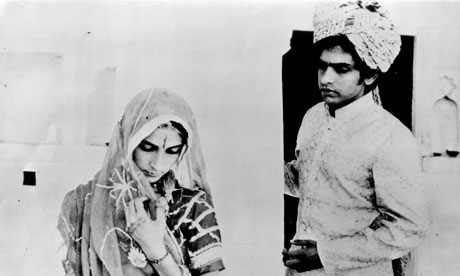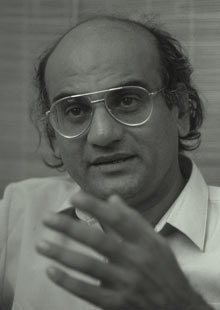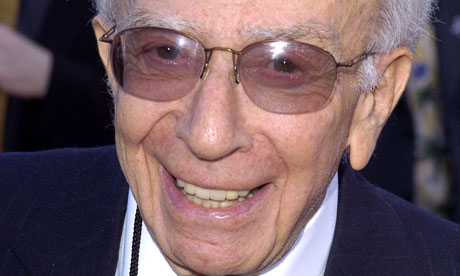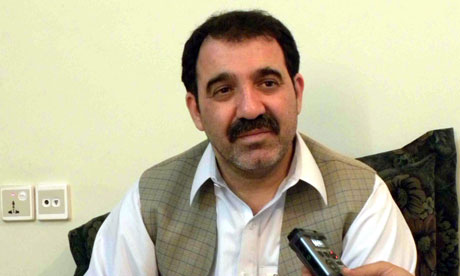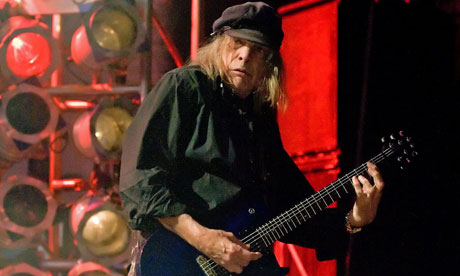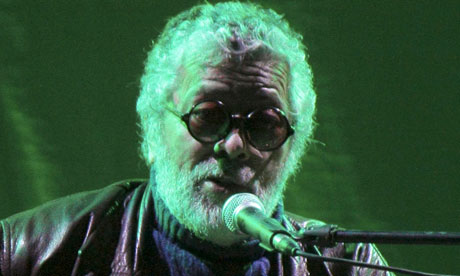A striking presence on stage and in the great days of British film, she played the prison governor of TV's Within These Walls
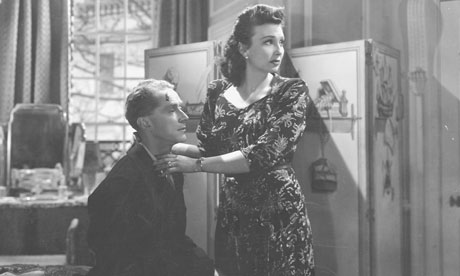
Googie Withers in Dead of Night (1945).
Followers of postwar cinema may well recall Googie Withers's striking presence in It Always Rains On Sunday, an unusually intense film for the Ealing Studios of 1947. She played a bored wife who gives shelter to an ex-lover, now a murderer on the run, a role taken by her real-life husband John McCallum. The lovers were shown as unsympathetically as they might have been in French film noir, and the weather was bad even by British standards. What Withers, who has died aged 94, brought to that performance was to define her strength in some of her most powerful roles. Too strong a face and too grand a manner prevented her being thought conventionally pretty, but she was imposingly watchable because of an obvious vigour and sexuality. Thus equipped, she acquired great skill at playing wives in various states of dissatisfaction because of the implied sexual shortcomings of their husbands. She was especially effective in roles created by the playwright Terence Rattigan. These included the not entirely unsympathetic wife in the stage version of The Deep Blue Sea (1952) – the "respectable" but emotionally unsatisfied wife of a judge who throws herself at a weak and irresponsible ex-RAF wonderboy. Another Rattigan creation that might have gone to Withers was the part of the wife of the dried-up and professionally despised schoolmaster in the film of The Browning Version (1951). In the event, Jean Kent provided one of the most harrowing moments to that date in British cinema when she tried to destroy her husband's remaining hopes with such vicious hatred that the scene was often booed and hissed in 1950s cinemas. Withers, while making the cause of the wife's frustration just as plainly sexual, might well have conveyed a certain residual warmth and humanity that would have transformed melodrama into drama. Withers was a loss to the British stage and screen when she followed her husband to his native Australia in the 1960s. They had married in 1948, and had two daughters, Joanna and Amanda, and a son, Nicholas. From 1955 onwards, she alternated between productions in the northern and southern hemispheres. But while her touring work focused more on Australia and New Zealand, she still made the first three seasons of a British TV series, Within These Walls (1974-75), as the governor of a women's prison, which gave her her biggest national and international audience. Georgette Lizette Withers was born in Karachi, in pre-partition India, to a British naval captain who hated the thought of his daughter going on the stage and a Dutch mother who quietly encouraged her. The captain, who tried to run a Birmingham foundry after leaving the Royal Navy through poor health, was a high-handed man who clashed with fellow directors whom he openly despised, and lost his job. His daughter inherited his imperious inability to keep his opinions to himself, but in her case it was softened by her feminine humour. At 12, while a boarder at Fredville Park private school near Dover, she took dancing lessons, initially to straighten bandy legs. At the same age she made her first professional appearance, in the chorus of a children's show at the Victoria Palace, London. She persuaded her parents to send her to the Italia Conti school after she had worked her normal school day at the Convent of the Holy Family in Kensington. A fall during dancing class permanently weakened an arm and indicated a less arduous form of dancing. She did cabaret in Midnight Follies at the Mayfair hotel and the Kit Kat Club. At 16 she was the youngest member of the chorus of Nice Goings On and was soon appearing in other popular musicals. From 1935 onwards, she appeared in more than 60 television series and films, including some of the finest movies of the time: One of Our Aircraft is Missing (1942), They Came to a City (1944, from the JB Priestley novel); Miranda (1948), in which Glynis Johns played the mermaid and Withers the all-too-normal woman; and Jules Dassin's Night and the City (1950), with Richard Widmark. On the stage she was a beguiling Beatrice in Stratford-upon-Avon's production of Much Ado About Nothing (1958), and though her move to Australia often brought her under the umbrella of her husband's theatre management, she continued to play in often adventurous work in Britain, including Ionesco's Exit the King for the Edinburgh Festival and the Royal Court theatre. A production of Somerset Maugham's The Circle at the Chichester Festival theatre in 1976 was so successful that it went to the West End, Canada and on tour in Britain. Withers's Lady Bracknell in The Importance of Being Earnest (1979) at Chichester managed to step out of the shadow of Edith Evans's high-camp shadow without losing impact. In the 1970s, when traditional leading ladies were less in demand, Withers's career became more variable. In 1971 she appeared in a film produced and directed by her husband, and featuring her daughter Joanna, called Nickel Queen, otherwise known as Ghost Town Millionairess, an examination of socialites and riff-raff in an Australian town dominated by nickel production. It was not well received, one comment being that it was an appalling bit of Australiana that made Barry Humphries's film The Adventures of Barry McKenzie (1972) look like a refreshing can of Foster's. Her appearance three years later as Faye Boswell in Within These Walls was more successful. Giving her formidability a greyer hue, she played a prison governor striving to be, as well as a disciplinarian, as sensitive as possible to the problems of the prisoners. The series led to further successes in the 1980s, when on television she appeared in distinguished productions including Northanger Abbey, the series based on the Anita Brookner novel Hotel du Lac and the Kingsley Amis novel Ending Up. She was still active in the 1990s, appearing in two highly praised films. Country Life (1994), directed by Michael Blakemore, was a version of Uncle Vanya set in Australia in 1919, showing what was on the collective mind of one part of the British Empire as Chekhov had shown what was on the minds of a fading Russian social class. She also appeared in Shine (1996), a film based on the career of David Helfgott, the pianist struggling against family pressures and mental instability, whose real-life interpretation of Rachmaninov's Third Piano Concerto was used in the film and became a controversial attraction in the concert hall. Withers played the writer Katharine Susannah Prichard, who helped Helfgott in his ambition to get away from his possessive father and to London for his higher musical training, but died before she could enjoy his success. Personally, despite the theatrical grand manner, she had common sense as well as taste and some skill at human relations. She was a great trouper of the old school who, coming back to England in 1967 to play the forceful mayoress in Shaw's Getting Married, found the country "changed and lacking in energy". The woman who was once called "the best bad girl in British films" was always prepared to help make up any deficiency in that respect. Her husband died last year, and she is survived by her children. • Googie (Georgette Lizette) Withers, actor, born 12 March 1917; died 15 July 2011
